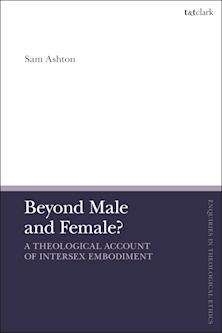- Home
- ACADEMIC
- Theology
- Theological Ethics
- A Political Theology of the Bureaucratic State
This product is usually dispatched within 1 week
- Delivery and returns info
-
Free US delivery on orders $35 or over
You must sign in to add this item to your wishlist. Please sign in or create an account
Description
Liberal democracies of the twenty-first century face the continuing economic tensions of globalization and the various populist political responses. In A Political Theology of the Bureaucratic State, Steven T. Lane argues that a deeper problem exists underneath the neoliberal system of contemporary democratic capitalism—the bureaucratic state and the ways it deploys its sovereignty. Yet these problems have received little attention from Christian political thinkers in the fields of ethics or political theology. By bringing thinkers from across the academic disciplines, from political philosophy and economics to biblical interpretation and public policy, and using modern case-studies related to public health and welfare state, Lane address the foundational issues affecting liberal democracies and the claims to power they make against their citizens.
Table of Contents
Chapter 1: Toward a Typology of Sovereignty
Chapter 2: Who Coerces the Coercers?
Chapter 3: Who Shapes the Shapers?
Chapter 4: Bureaucracy Ascendant
Chapter 5: The Dominion of God
Chapter 6: Resting from Coercion
Product details
| Published | Oct 31 2024 |
|---|---|
| Format | Hardback |
| Edition | 1st |
| Extent | 172 |
| ISBN | 9781978717046 |
| Imprint | Fortress Academic |
| Illustrations | 10 Tables |
| Dimensions | 9 x 6 inches |
| Publisher | Bloomsbury Publishing |
About the contributors
Reviews
-
Scholarly discussions of political theology are broadening in productive ways, and Steven T. Lane’s work contributes to this movement. Lane asks: what would it mean to shift the focus of political-theological analysis from singular sovereign to bureaucracy? To answer this question, he engages with social and political theory, from Max Weber to Wendy Brown, as well as with our contemporary political landscape, from the pandemic to mass incarceration. This book will give Christian social ethicists much to ponder.
Vincent Lloyd, Villanova University


































